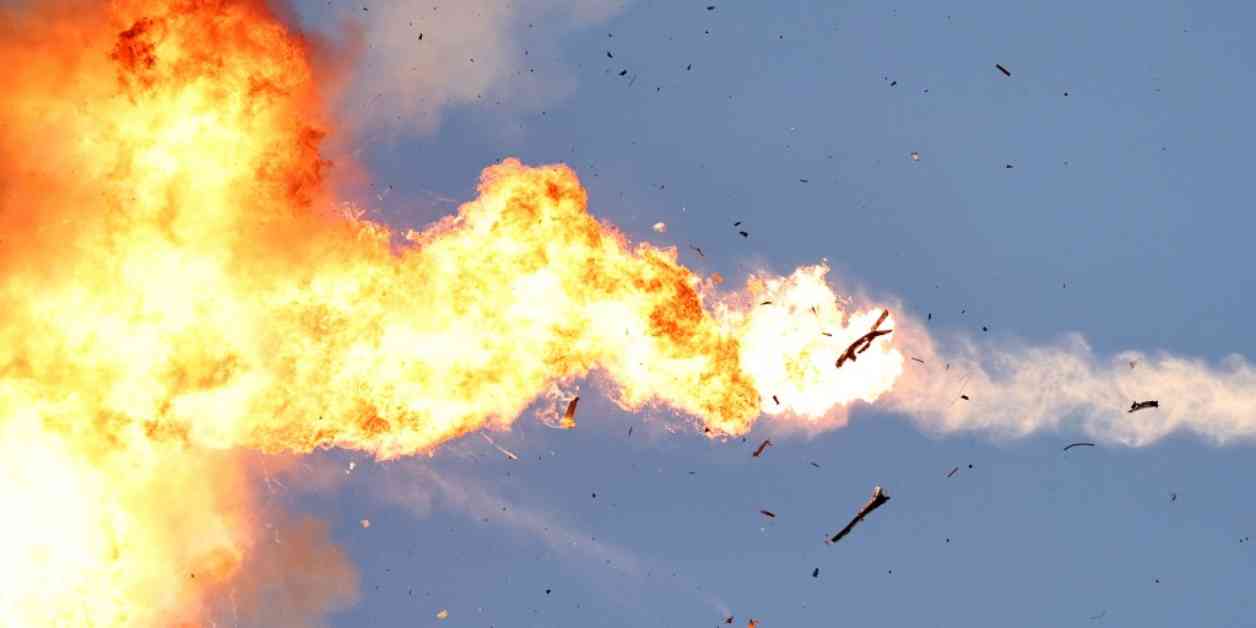Israel-Hezbollah Escalation: Future Implications for the Middle East
The long-feared escalation between Israel and Hezbollah finally erupted over the weekend in a series of cross-border attacks, leaving the Middle East on edge. However, despite the intensity of the exchange, Monday dawned without the outbreak of all-out war – at least for the time being. The back-and-forth attacks between Israel and Hezbollah followed weeks of escalating threats that had raised concerns about the potential for a wider regional conflict. On Sunday, Israel launched pre-emptive strikes in southern Lebanon after detecting what it described as preparations for a “large-scale” attack by the Iran-backed militant group. In response, Hezbollah launched hundreds of rockets and drones, claiming to have targeted a military intelligence base near Tel Aviv as retaliation for the assassination of a senior commander in Beirut the previous month. This exchange of fire marked the heaviest confrontation between the two sides in nearly ten months of simmering conflict.
The situation quickly drew the attention of key players in the region and beyond. The United States, a staunch ally of Israel, expressed hope for efforts to secure a ceasefire in Gaza amidst the escalating tensions. Meanwhile, Tehran, reiterating its vow of “definitive” retaliation against Israel, praised Hezbollah’s attacks as a success. Despite the intensity of the clashes, both Israel and Hezbollah signaled a willingness to de-escalate, indicating that neither side was seeking an all-out war at this time. Avi Melamed, a former Israeli intelligence official and negotiator, noted that the exchange of fire along the Israeli-Lebanese border and the subsequent messages from both parties suggested a desire to avoid further escalation. He suggested that the recent violence could potentially bring a sense of calm to the region and alleviate the anxiety surrounding the possibility of a full-blown conflict.
Subheading: Regional Dynamics and Implications
The escalation between Israel and Hezbollah occurred against the backdrop of ongoing negotiations in Cairo aimed at securing a ceasefire between Israel and Hamas in Gaza. The talks, which concluded without a final agreement on Sunday, are expected to continue at lower levels in the coming days to address remaining gaps in the negotiations. The discussions in Cairo were described as constructive, with all parties demonstrating a willingness to reach a comprehensive and implementable agreement. The talks in Cairo highlighted the interconnected nature of conflicts in the region and the potential for a broader conflagration if tensions are not effectively managed.
Hezbollah leader Hassan Nasrallah addressed the Lebanese public following the weekend’s events, emphasizing the group’s strategic restraint in response to the assassination of one of its commanders. Nasrallah stated that Hezbollah had delayed its retaliation to allow for continued negotiations and reiterated that the group had no intention of targeting civilian infrastructure. He declared that Lebanon could now rest, but also issued a warning that further action could be taken if the results of the recent operation were deemed insufficient. Nasrallah’s statements underscored the delicate balance of power in the region and the potential for further escalation if grievances are not addressed through diplomatic channels.
Subheading: Military Strategies and Responses
The military dynamics of the Israel-Hezbollah conflict were on full display during the recent escalation. The Israel Defense Forces (IDF) conducted pre-emptive strikes in southern Lebanon, deploying dozens of fighter jets to target what they perceived as imminent threats from Hezbollah. The IDF’s readiness and aerial defense systems were credited with minimizing the impact of Hezbollah’s subsequent attacks, which included approximately 320 Katyusha rockets aimed at Israeli bases and military sites. Israeli Prime Minister Benjamin Netanyahu warned that the hostilities on Sunday were not the end of the conflict, signaling a readiness to respond to any further provocations from Hezbollah.
Hezbollah, known for possessing one of the largest missile arsenals of any non-state actor in the world, demonstrated its capacity to strike deep into Israeli territory with its rocket attacks. The group’s ability to launch such a significant number of rockets underscored its military capabilities and its preparedness for a potential conflict with Israel. Despite the apparent restraint shown by both sides in the aftermath of the weekend’s clashes, the underlying tensions and strategic calculations of each party remained unresolved, leaving the possibility of further confrontations in the future.
Subheading: International Reactions and Diplomatic Efforts
The escalation between Israel and Hezbollah elicited responses from key international players, reflecting the broader implications of the conflict for regional stability. Iran, which has pledged retaliation against Israel for the assassinations of key figures, including a senior Hezbollah commander, maintained a stance of measured and calculated responses. The Iranian foreign ministry emphasized that Israel had lost its deterrence power and highlighted the success of Hezbollah’s attacks as a signal of resistance against Israeli aggression. The international community closely monitored the developments in the Middle East, with concerns about the potential for a wider conflict prompting calls for diplomatic de-escalation and dialogue.
The United States, as a major stakeholder in the region, reiterated its commitment to supporting efforts to secure a ceasefire in Gaza and prevent further escalation between Israel and its adversaries. The U.S. official involvement in the talks in Cairo demonstrated the importance of diplomatic engagement in managing regional conflicts and preventing the outbreak of full-scale warfare. The delicate balance of power in the Middle East, with multiple actors vying for influence and control, underscored the need for coordinated international efforts to address the root causes of conflict and promote peaceful resolutions to longstanding disputes.
In conclusion, the recent escalation between Israel and Hezbollah has highlighted the complex dynamics at play in the Middle East and the potential implications for regional stability. The delicate balance of power, coupled with the strategic calculations of key players, underscores the importance of diplomatic engagement and conflict resolution to prevent further escalation and mitigate the risk of all-out war. As regional tensions remain high, the need for dialogue, negotiation, and mutual understanding is more pressing than ever to avoid the devastating consequences of prolonged conflict in the Middle East.



























